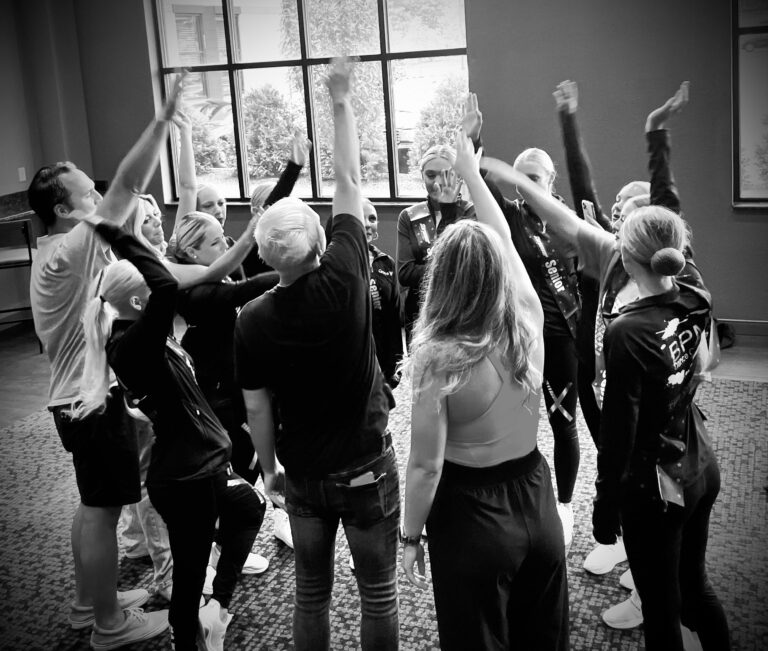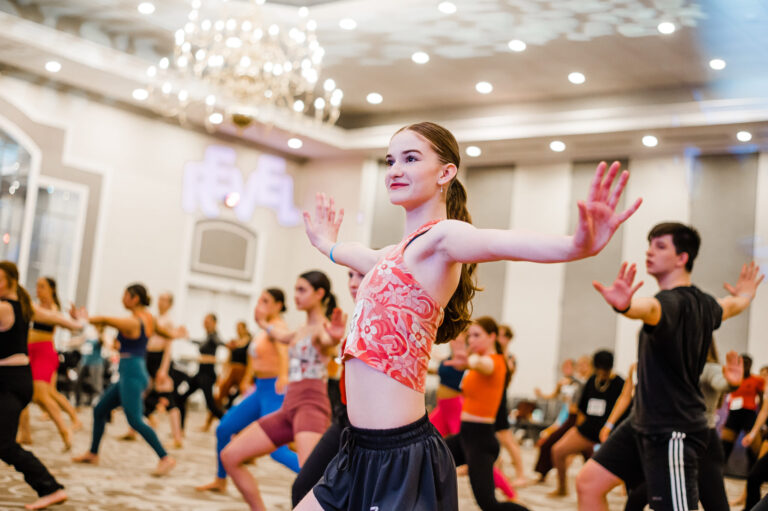
As dance studios all over the world began to close, teachers scrambled to support their students and transition dance education—seemingly overnight—online. You’ve likely spent some sleepless nights worrying about your students, stressing over how to make their living-room barre impactful, or staring bleary-eyed at Zoom trying to prepare for class the next day.
Much concern has been directed at the well-being of dancers as they navigate the unprecedented circumstances of the COVID-19 pandemic, and rightfully so. But as a teacher you also are living in a time of great stress and grief, with the eyes of your students trained on you for leadership. Like your students, you have lost your final performance, or the chance to hug your seniors goodbye.
But instead of giving yourself space to grieve, you may have pivoted to creating virtual recitals and summer intensives. In all of the worrying about your students, you may have forgotten to take care of yourself.
It’s essential to invest in your own wellness, for your sake and your students’. By taking the time to grieve what you’ve lost, and establishing good self-care practices, you will be better able to support your students.
Acknowledge your own loss
There is a lot to grieve right now: the loss of connection, the performance you have been working toward with your students all year, and potentially loved ones. According to psychologist Jo-Anne LaFlèche, who teaches psychopedagogy at L’École supérieure de ballet du Québec in Montreal, grief is a mourning process that arises when we have lost a person, object, place or period of our lives. Grief does present in stages, beginning with shock or denial and ending with acceptance, but LaFlèche cautions that they do not necessarily occur linearly. “You may go from mood swings and sadness back to denial,” she says.
LaFlèche says that it is imperative that teachers attend to their grief. “If they are feeling guilty because they can’t give their class, or fearful that their employment with a school may be jeopardized because the students have not gotten to a certain point, they may be putting unfair pressure on themselves, and the student is going to sense that,” she says. “They need to reflect on, what does this mourning process mean to me? And how am I taking care of myself?”
Don’t try to move forward as though nothing has happened. LaFlèche says that acknowledging what you have lost is an important part of the process. Confront the loss upfront with your students: “I am feeling really disappointed and down about the loss of our final performance, and I know you all must be feeling that, too.” You might suggest that the class create a time capsule with you to focus on the positive aspects of the year.
Lower your expectations
What you are doing is stressful. In her work with dance educators over the past two months, LaFlèche has noticed that online teaching is taking a toll. “It is, at best, a very tiring experience,” she says. “Teachers must put greater effort in creating human contact with their students due to the virtual setting. This means they usually have to be more outgoing, more attentive to the students’ needs and to their bodily and emotional reactions while they dance on camera. They must also ensure their students’ safety in an uncontrolled physical environment.”
LaFlèche encourages teachers to manage their expectations of what their students can do, and what they can accomplish in these virtual settings. If you go into your virtual classes or recital with the same expectations as pre-COVID, you are all going to end up frustrated.
Have a plan B when preparing for your next virtual program so that inevitable disruptions won’t completely derail you. What will you do to help dancers continue learning if connection is lost during a class? You can have some videos ready to send via e-mail for them to watch and respond to. Morale is down? Have them improv to their favorite music. You will feel better with ideas in your back pocket.
Track your accomplishments
For Bonnie Robson, a retired psychiatrist who worked with the National Ballet of Canada, part of what we are grieving at this time is a loss of momentum and productivity. She says this loss may be at least partially offset by being successful at new endeavors. “With all the changes occurring in the new normal, there are lots of chances to re-invest in novel activities of which one can be proud,” says Robson. Expanding your interests is key to developing a well-rounded identity and will help your well-being overall.
Put a notebook on your night table and spend two minutes before bed writing down at least one thing you accomplished today. Made a class of sullen faces laugh when your feed went glitchy? Perfect. Replanted the front flower bed? Awesome. Fulfilled your commitment to a daily meditation practice? Excellent. Look forward to what is next. What have you learned from this experience that will help you in the future? Give what you have experienced some value, because you have been working hard.




